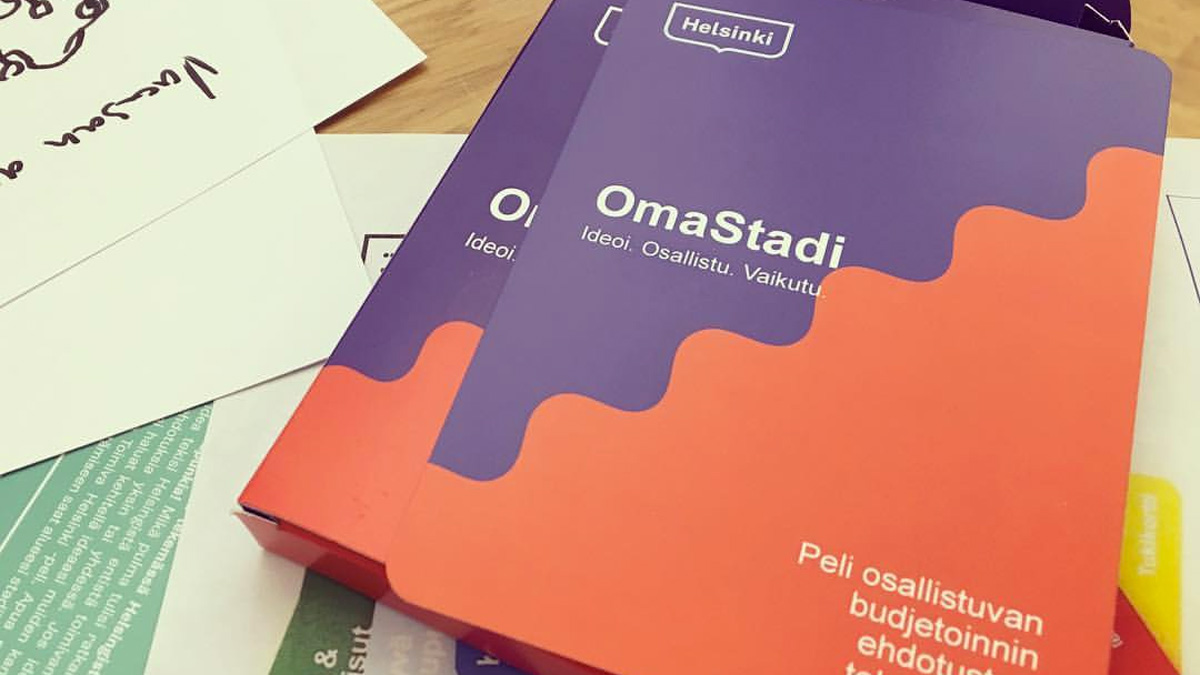OmaStadi Budgeting Game: An evaluation framework for working towards more inclusive participation through design games.
Today, the notion of participatory budgeting has been implemented in more than 1500 cities worldwide. In Finland, the City of Helsinki’s new participatory budgeting process, OmaStadi, opens up an annual budget of 4.4 million euros to implement proposals suggested by citizens. For this process, the city has developed a design game, the OmaStadi game, to facilitate these proposals. The main goal of the game is to make participation in OmaStadi more inclusive. Therefore, it is designed to support qualities such as equal participation, improved discussion, creativity, citizen learning, and city perception. The fact that the game is specifically designed to be played by citizens as part of a participatory budgeting process, makes it among the first of its kind in the world. Thus, research into its impact are consequently unique.


My MA thesis evaluated the OmaStadi game’s impact on the overall inclusiveness of the first year of participatory budgeting (2018-2019). This was done using a constructive and learning-oriented approach that focused on the challenges (limiting factors), strengths (enabling factors), and achievements (impact) of the game. Research data were collected through qualitative interviews with five civil servants in charge of facilitating OmaStadi, the main designer of the game, and four of the participating citizens.
The impact of the game was analysed using five identified goals and subsequently examined using three democratic criteria for evaluating participatory processes: participation (inclusion), political equality, and quality of deliberation.

Overview of the five main goals for the OmaStadi game and my evaluation.
The research findings indicated that the game seemingly supported the overall inclusiveness of the broader budgeting process. Further, it contributed to making the gameplay, discussion, and idea development more equal for the citizens. Lastly, the game was seen to strengthen the discussion between citizens, improve the creativity of these, and enhance the overall quality of their proposals. However, in terms of quality of deliberation, high deliberative quality seemed hindered by certain players’ strong attachment to their own ideas or tendency to give away their power very easily.
The evaluation results were then used to develop a broader evaluation framework with guidelines for how to plan, implement, and analyse further evaluation of the OmaStadi game. The “OmaStadi Peli Evaluation Framework” is designed as an iterative evaluation tool that introduces evaluation into a continuous cycle. The framework proposes several methods for analysing and identifying impact. It establishes formative and constructive practices for reflecting on, learning from, and improving upon the broader use of the OmaStadi game. Further, it identifies and utilises qualitative insights (limiting and enabling factors) to review, implement, and enhance the use of the game. Hence, it provides the City of Helsinki with a set of tools for monitoring and evaluating the game over a longer period of time as it can be used as part of the annual or biannual participatory budgeting process.

Ten step evaluation framework.
The approach introduced by the framework is not necessarily exclusive to the OmaStadi game, and thus, can easily be applied to other public participatory processes as well. By having a more integral, constructive, and iterative-led approach to evaluation, civil servants may be better prepared to identify potential challenges with their processes or services, which would allow these to be continuously improved as they are delivered.
Involved organisations


